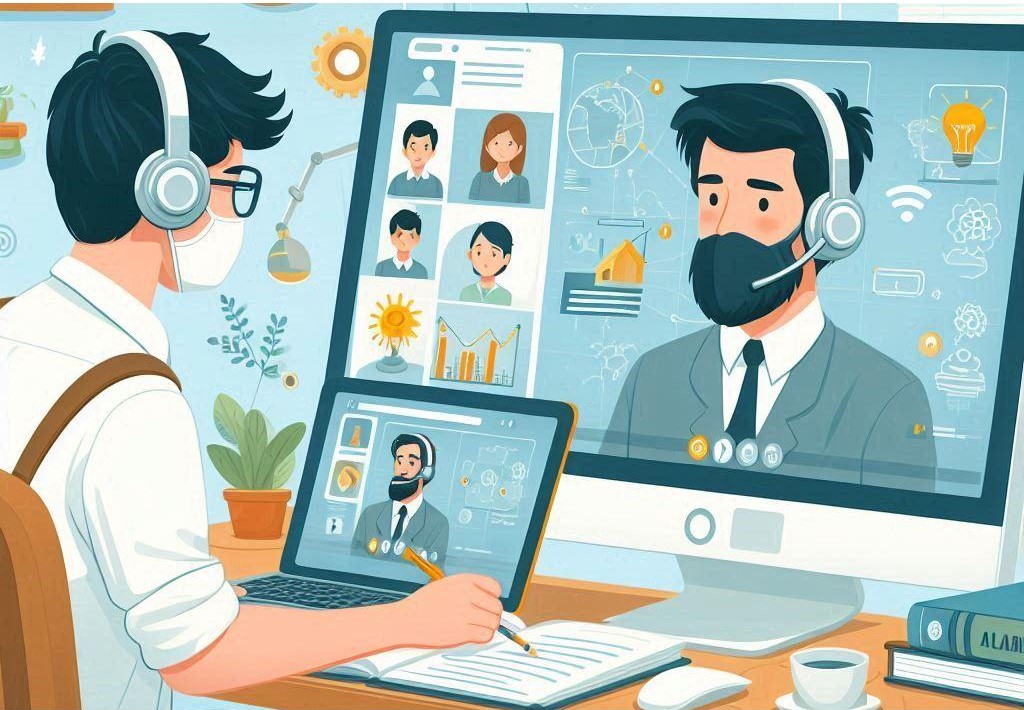The Rise of Online Learning: A New Era in Education

Online learning has progressed from a specialized educational approach to an essential component of modern education. As technology progresses and becomes more accessible, online learning platforms have emerged as strong instruments for changing education, skill development, and personal growth. This shift toward digital learning is more than a passing fad; it is a response to the growing desire for flexible, accessible, and individualized education that caters to a diverse global population.
The advantages of online learning are vast and well-documented. It provides exceptional flexibility, allowing students to access courses and resources at their own speed and on their own time. This flexibility is especially beneficial for working professionals, parents, and others who may lack the time or finances to attend traditional, in-person seminars. Online learning also caters to different learning styles by using interactive multimedia content such as films, simulations, and quizzes to increase engagement and retention.
The advantages of online learning are vast and well-documented. It provides exceptional flexibility, allowing students to access courses and resources at their own speed and on their own time. This flexibility is especially beneficial for working professionals, parents, and others who may lack the time or finances to attend traditional, in-person seminars. Online learning also caters to different learning styles by using interactive multimedia content such as films, simulations, and quizzes to increase engagement and retention.
Previously, online learning was viewed as a supplement to traditional education techniques, rather than as the major way of learning. However, the global trend to remote work and education, driven by the COVID-19 epidemic, has altered this perception. Online learning has become a requirement, offering critical continuity in education and professional growth throughout disruptions. This transition has resulted in new approaches to online course design, delivery, and experience, making them more interesting and effective.
Effective online learning is both an art and a science, necessitating the careful integration of technology, instructional design, and psychology to produce engaging and powerful learning experiences. To enhance the online learning experience, educators and course designers must take into account a variety of elements such as course organization, material distribution, and learner engagement. This includes using statistics and feedback to continually enhance course quality and outcomes.
Online learning is more than just personal development; it has the ability to spark profound social change. Online learning can help close the educational inequality gap by making education more accessible and inexpensive. It provides an opportunity for marginalized populations to learn valuable skills and knowledge, allowing them to enhance their economic prospects and contribute to their communities. This democratization of education is especially vital in underdeveloped nations, where access to quality education has traditionally been limited.
As countries such as India set lofty aspirations to compete in the global economy, there is an urgent need to equip millions with digital skills. India's goal of generating a 30 million-strong digitally enabled workforce by 2026 emphasizes the relevance of online learning as a vehicle for quick skill development. Online courses in programming, data analysis, cybersecurity, and digital marketing are critical to satisfying this demand and preparing the workforce for the problems and opportunities that the digital economy presents.
The environment of distance learning is always changing, influenced by technical breakthroughs and societal needs. Current developments include the rise of micro-credentials and certifications, which allow learners to acquire specific skills in less time. Furthermore, immersive technologies like virtual reality (VR) and augmented reality (AR) are being blended into online learning platforms to create more dynamic and engaging experiences. These trends illustrate the continual innovation in distance learning, which seeks to make education more effective, inclusive, and relevant to the needs of the 21st-century workforce.
The transition of online learning from a novel concept to a core part of education reflects a broader trend toward flexibility, accessibility, and continual learning. As we move forward, online learning will play an increasingly important role in personal development, job success, and societal progress. Embracing this form of education enables individuals and communities to remain relevant in an ever-changing world, opening up unlimited opportunities for growth and achievement.